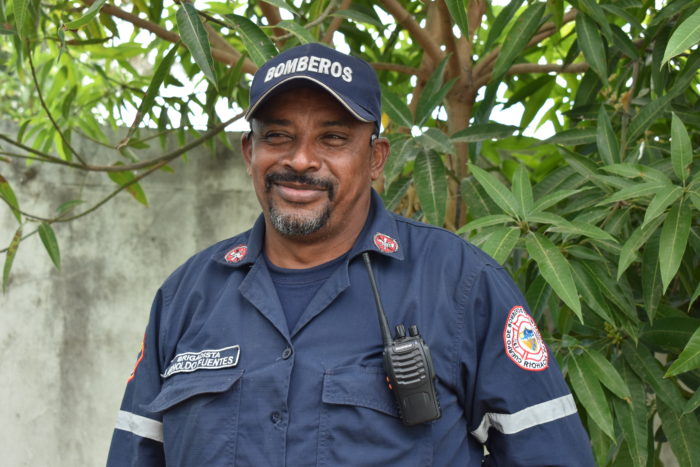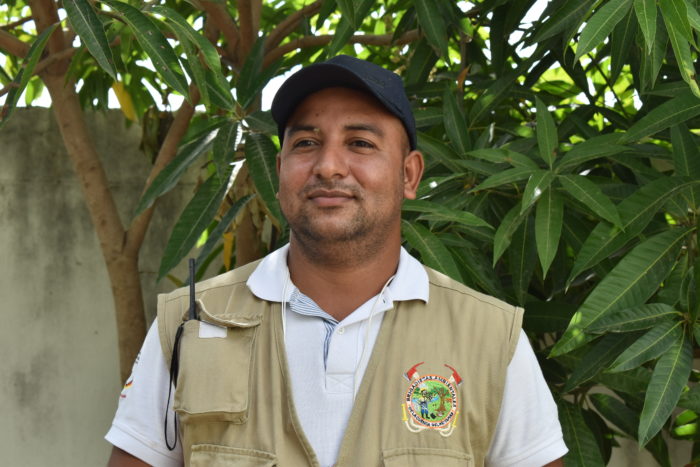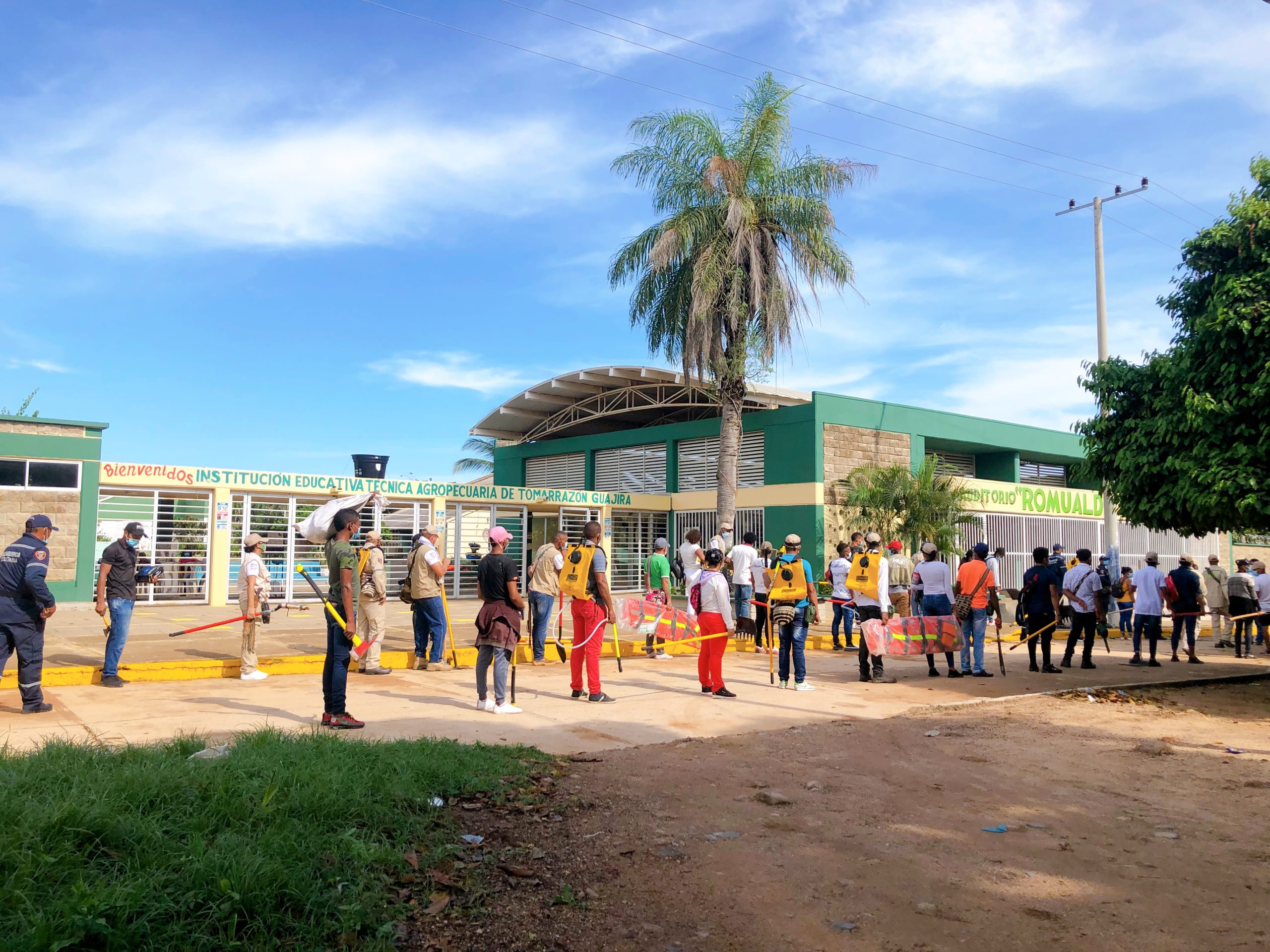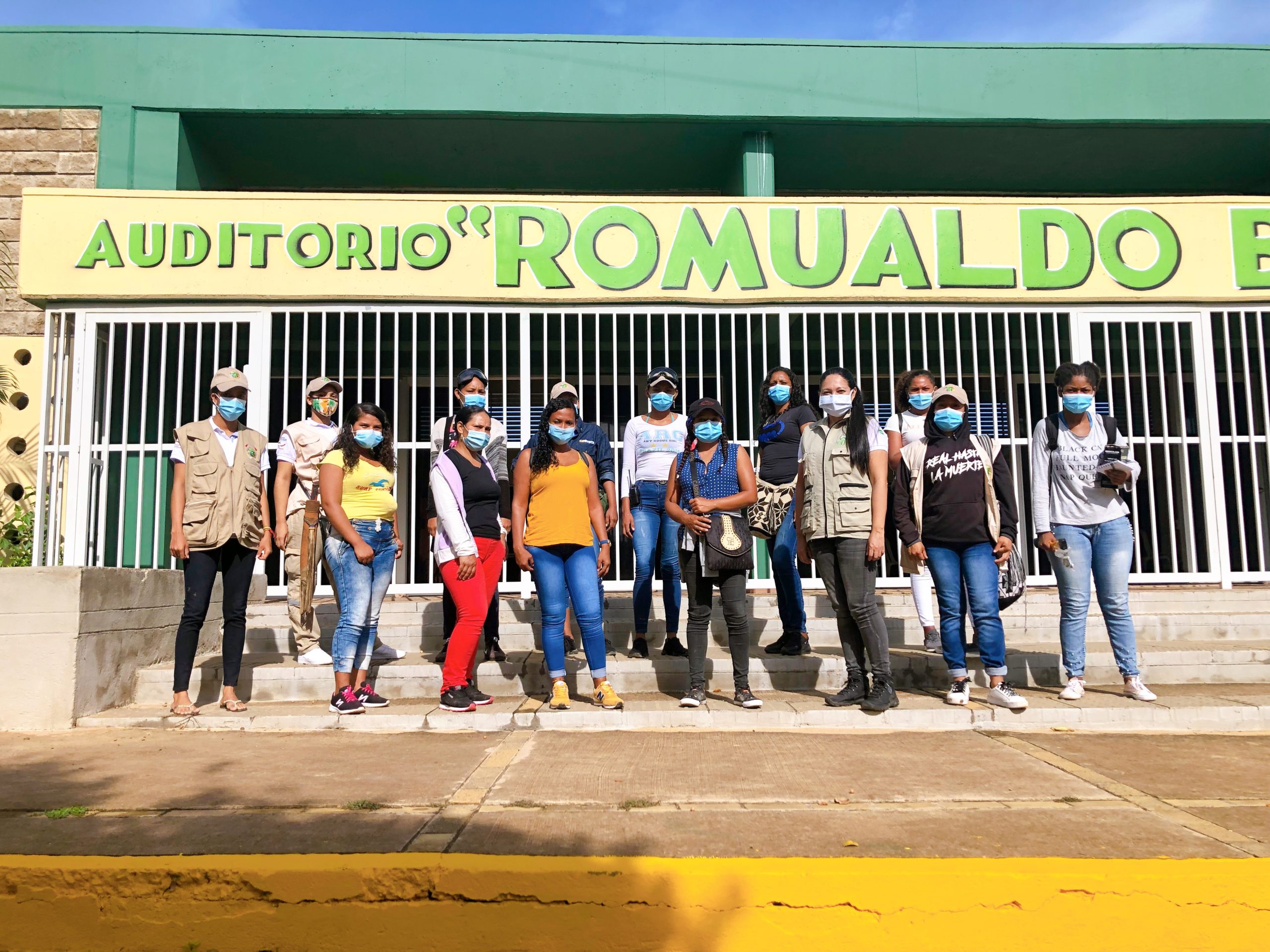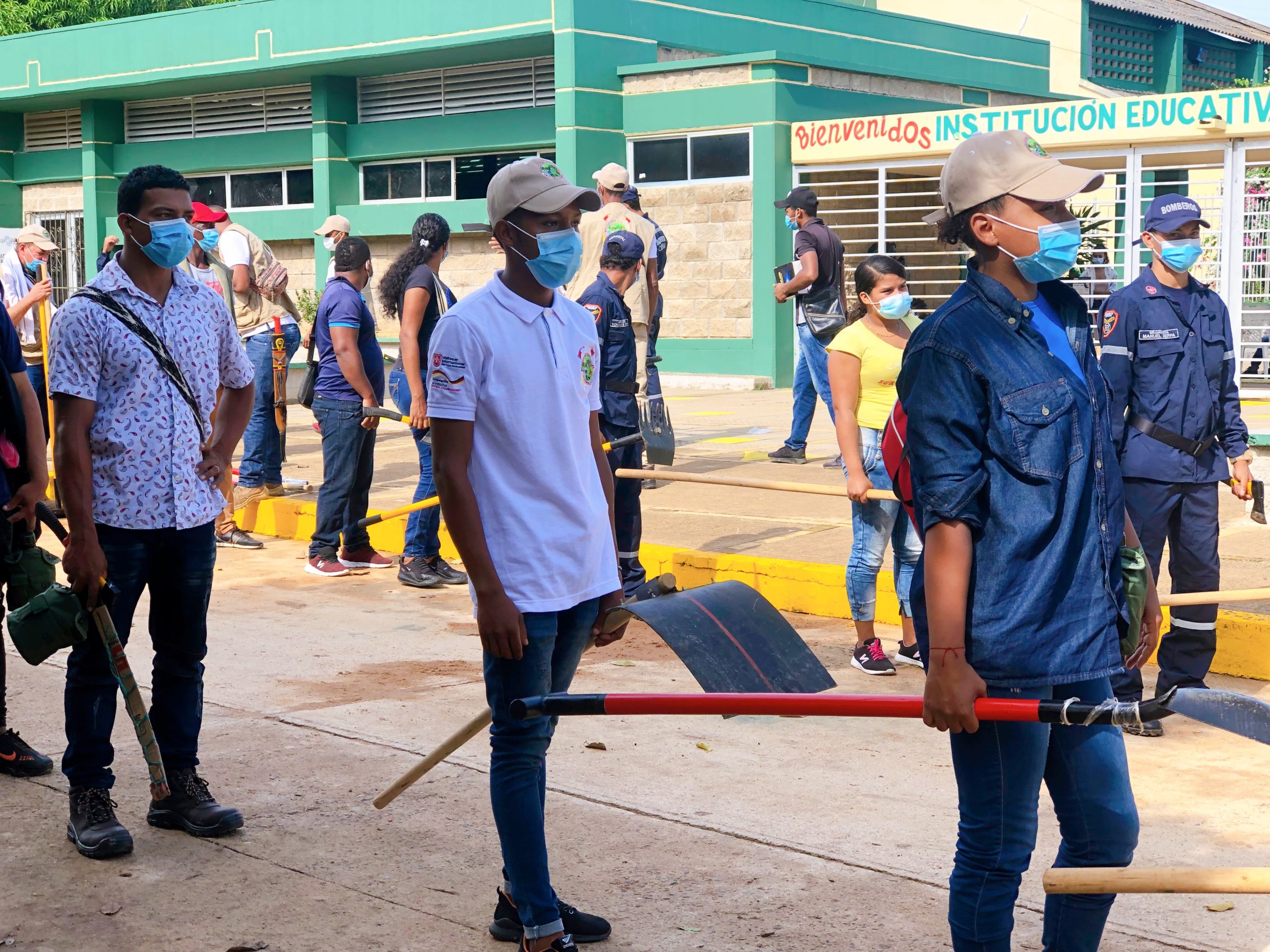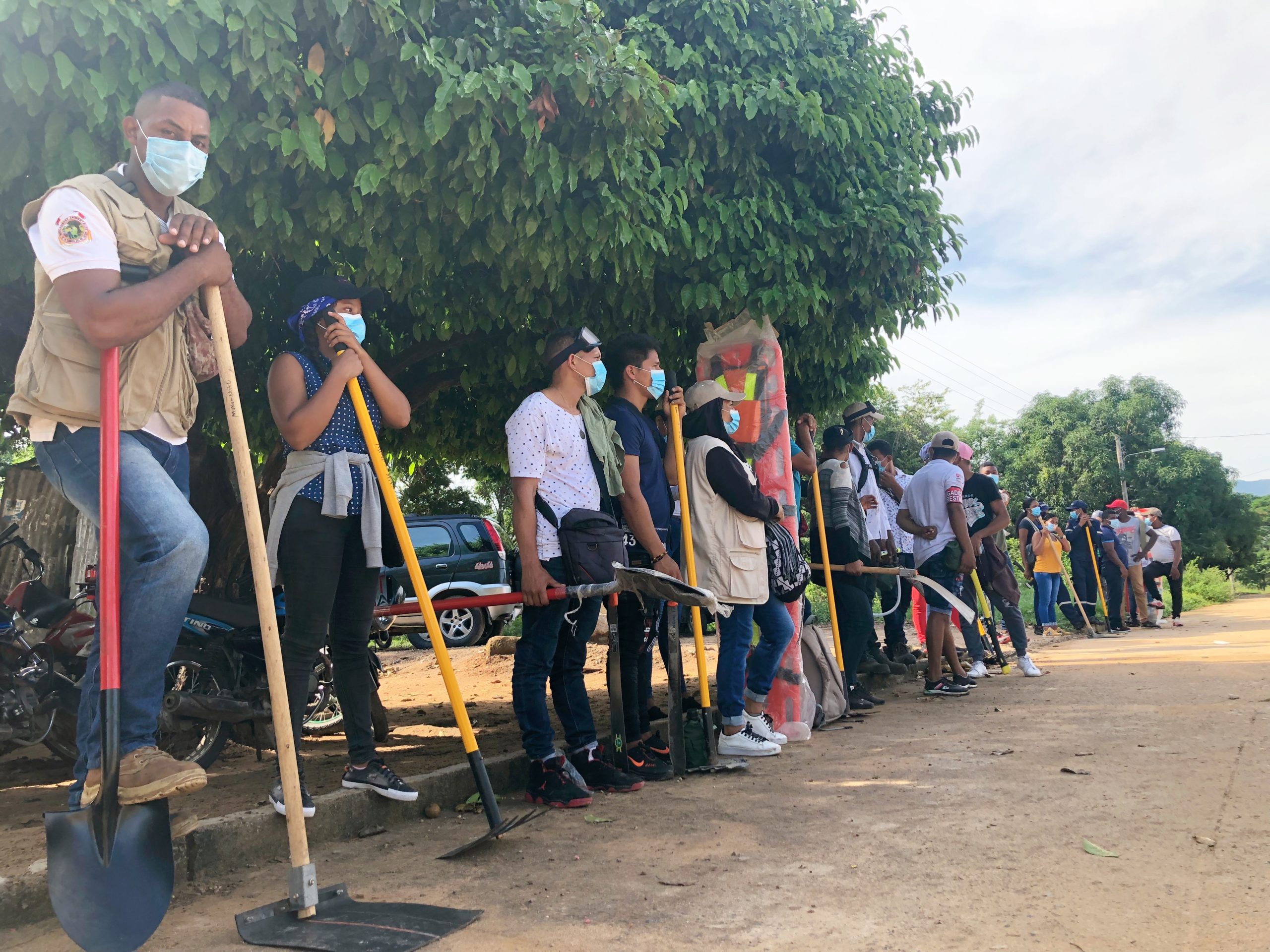Americas
Colombia – A Commitment to Conservation: How Rural Communities are Responding to Forest Fires
In La Guajira – an arid region in North East Colombia that suffers from severe droughts and forest fires – Malteser International Americas works to strengthen the resilience of local communities by supporting local organizations through education and training around forest fire prevention.
With its vast array of ecosystems including tropical rainforest, jungles, mangrove swamps and tropical wastelands, Colombia is the second most biodiverse country on the planet and it houses approximately 10% of the world’s biodiversity. However, Colombia’s large swathes of forests are disappearing, and at alarming rates. According to the forest monitoring platform Global Forest Watch, Colombia lost 4.2 million acres of forest between 2002 and 2021, making up 38% of its total tree cover loss in the same period. In 2020 alone the country lost 424,000 acres of forest, an area twice the size of New York City. Deforestation, in addition to decimating entire ecosystems and releasing greenhouse gas emissions, also has had negative ripple effects on rural communities, bringing about increased rates of poverty and displacement. Climate change has been wreaking havoc among coastal populations, ruining their crops and fishing harvests, leaving them vulnerable to the elements.
Deforestation rates have increased since the end of conflict between the Colombian government and the Revolutionary Armed Forces of Colombia (FARC) in 2016. Paradoxically, during the conflict, the forests were well preserved due to the strategic interests that existed in maintaining the forest cover to support guerilla military operations and freedom of movement. This conflict for resources between illegal and lawful actors, in combination with deep socio-economic inequalities has driven rural communities to a breaking point. Slash and burn practices have been historically common in Colombia, with the nutrient-rich ash from the burnt trees creating a spacious and fertile land for farmers to grow crops, but this is causing rampant forest fires.
Deforestation, forest fires and rural communities
Rising rates of deforestation in Colombia increase the country’s vulnerability to climate change, which disproportionately harms the poorest and neglected rural communities. The risk is so high that Corpoguajira – the regional environmental agency in charge of natural resources – periodically appeals to farmers and peasants not to burn brush as part of their agricultural practices to avoid the risk of starting a fire. In 2021 alone, more than 15,320 acres of forest were destroyed by forest fires, which has a significant impact on entire ecosystems.
Malteser International Americas in partnership with local organization ABIUDEA, works with local communities to train them on environmentally safe farming practices and building their capacity to prevent, mitigate and respond to forest fires. The organization has built a collective of over 100 forest brigadiers (known as brigadistas in Spanish): intrepid first responders who are also skilled at managing risk and educating the community on addressing fires.
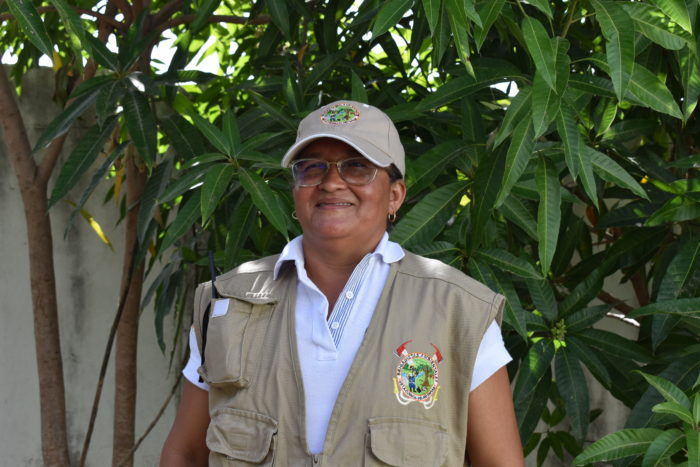
“My formal profession is teaching, but my heart is in the forest brigades.” – Olga Lucia Rodriguez Suarez, the first female member of the brigadistas.
“Climate change has affected our communities significantly. There have been a lot of fires, and no way to put them out. At times it didn’t even rain for months,” says Olga Lucia Rodriguez Suarez, the first female brigadista. Now the brigade has 20 women, and female participation is still growing. Malteser International Americas are building women’s capacities in an area and culture in which this is often overlooked, who are fully committed to preserving the environment and serving their communities.
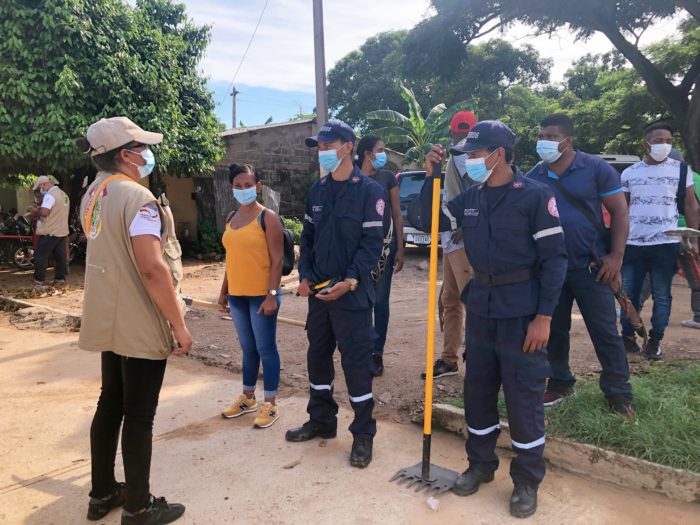
Arnoldo Fuentes is a firefighter who has served his local community for decades and has recently joined the group of brigadistas. Arnoldo recalls his grandparents using slash-and-burn practices carelessly and is only now, as an adult, becoming fully aware of the dire consequences that this practice has on the environment. Slash-and-burn agriculture was practiced daily in rural areas in La Guajira, with the nutrient-rich ash from the burnt trees creating a spacious and fertile land for farmers to grow crops, but its impact on the environment has had devastating consequences. This has had the negative effects not only on the environment, but also by altering the water cycles, putting the survival of local communities at risk.
“I saw this opportunity to become involved with the forest brigade and I didn’t hesitate for a second. I knew the kind of benefit it could bring to the community, to the environment and to everyone. We have supported the community and decreased forest fires by 90%.” Arnoldo leveraged his firefighting skills to train others and serve the community. The brigadistas have collaborated with the firefighters to strengthen their response protocols and coordinate with the local government.
And now fighting fire is sparking an interest in his 13-year-old child, who is worried that his beloved mountains and birds would disappear if the forest burns. Arnoldo and other older brigadistas are training groups of children, 7–8-year-olds, so that when they come of age, they have the proper tools at their disposal to become fully functional members of the forest brigade. “The majority of the new recruits to the forest brigades are young people, they will be the leaders of tomorrow.”
“Seeing my son’s interest in the state of our forests makes me more enthusiastic about being a forest brigadier. We want to ensure the younger demographic is equipped with the knowledge to protect the environment, so that it may continue to stay safe for generations to come.” – Arnoldo Fuentes
Pedro Luis Iguaran Mena, a biologist, is passionate about the brigadistas and believes that belonging to this collective, this community organization, “means giving your full heart, sometimes without receiving a thank you in return.” Pedro believes that the work with Malteser International Americas and ABIUDEA is critical for community development and engaging our youth. He’s conscious this is not a solution with immediate results, but a long-term investment in the community that will take generations to fulfil its potential.
“There are three key benefits: the first is strengthening the social fabric of our society. The second is the benefit to neighboring communities and the third one is to the environment and the planet. We conserve, we produce water, and release oxygen. It is a win-win!” – Pedro Luis Iguaran
Environmental problems are never solved overnight, they are complex and broad reaching. At Malteser International Americas this is what we are all about – empowering communities to help themselves, by providing them with small but incredibly impactful tools. We believe in partnering with vulnerable communities to help build a life of dignity with sustainable solutions while addressing global problems. Together, we can create a wave of inevitable change: small actions can have monumental impacts over time.
